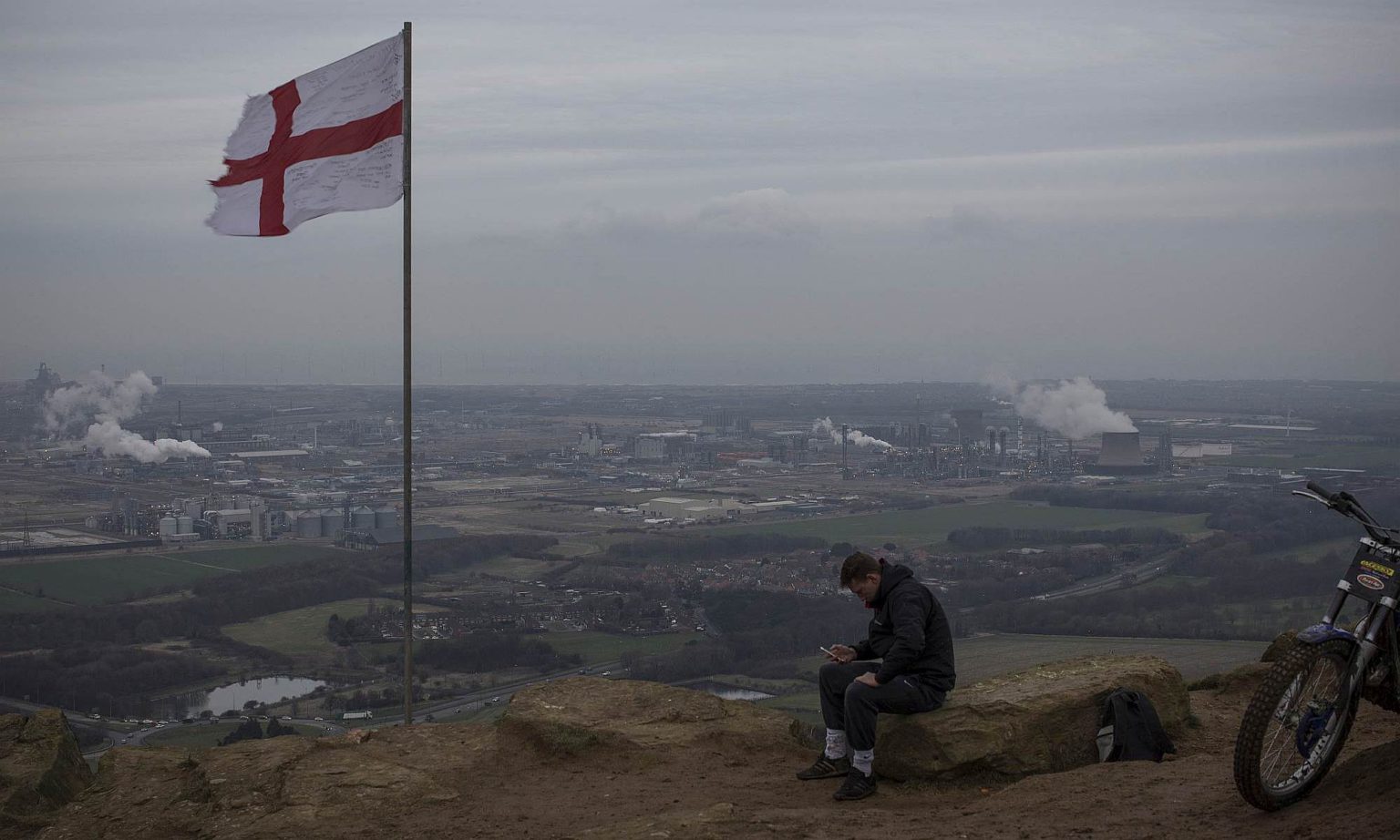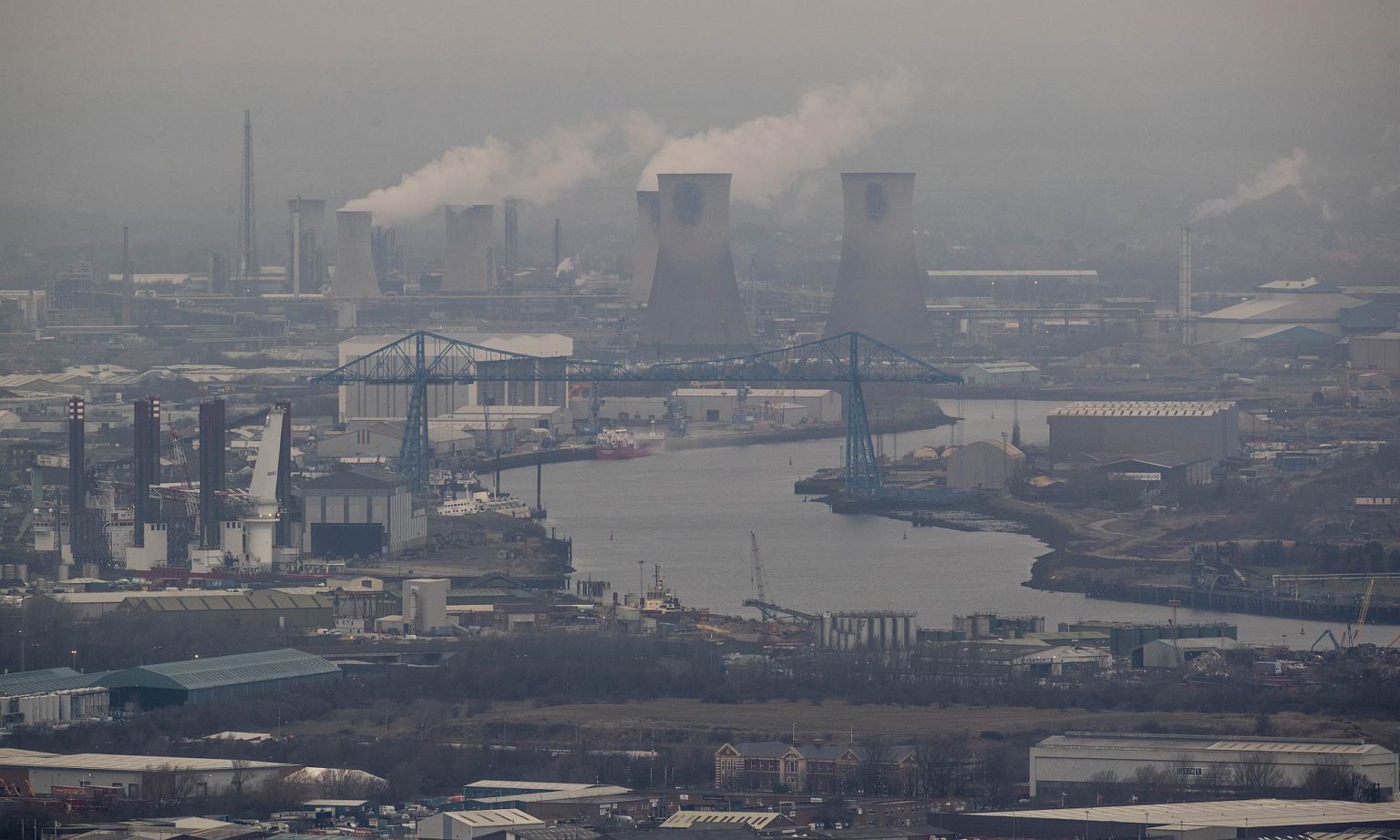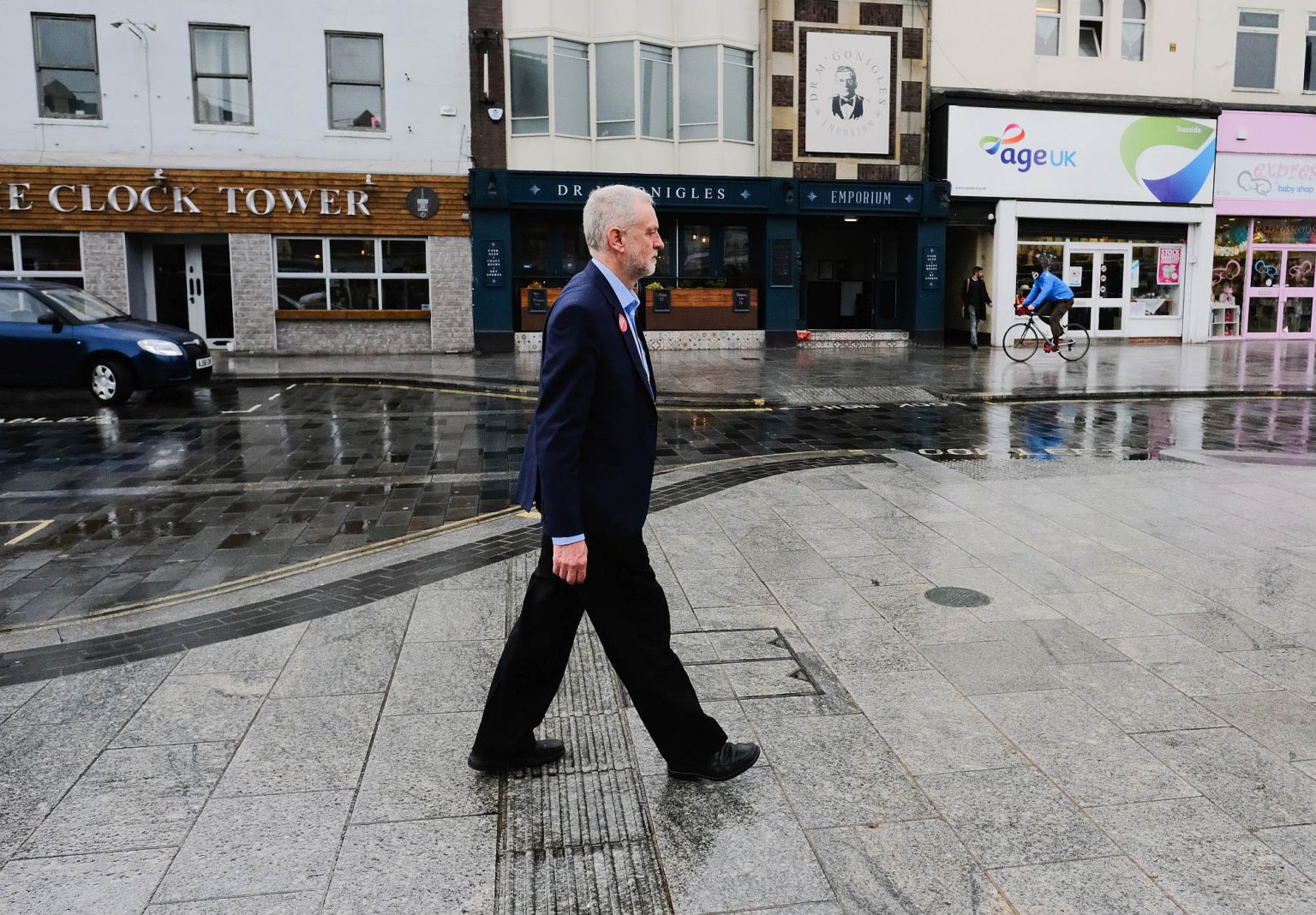
Long-read
Why the people must take back control
The Brexit-voting town of Middlesbrough provides a case study in political disenfranchisement.
Want to read spiked ad-free? Become a spiked supporter.
When I grew up in Middlesbrough during the 1980s, the town was suffering badly from the closure and restructuring of its heavy industry. Unemployment was the highest in the UK outside of Northern Ireland. For families everywhere, this meant bills mounting up, bailiffs knocking on the door and interminable waits for the ‘giro’ to arrive.
Margaret Thatcher was prime minister and, rightly or wrongly, the adults I knew held her personally responsible for the loss of their jobs and the economic crisis facing their town. To us children, she took on a mythical ‘bogeyman’ status and, as ‘the milk snatcher’, became the subject of playground taunts. Growing up, it seemed very clear to me that in Middlesbrough people voted Labour. The town was not just another brick in the red wall, it was a cornerstone.
How things have changed. In 2017, the Conservative Ben Houchen was elected as Tees Valley mayor. In the General Election that year, the constituency adjacent to Middlesbrough went to the Conservatives. The red wall appeared to be cracking, leading some to ask whether the Conservatives could win in places as diverse as Middlesbrough and Canterbury.
As it turns out, both Canterbury and Middlesbrough returned their sitting Labour MPs, Rosie Duffield and Andy Macdonald, in 2019’s General Election. But the cracks in the red wall were definitely there: whereas Duffield increased her majority, Labour’s share of the vote in Middlesbrough fell by 15.2 per cent. What’s more, only 56 per cent of people turned out to vote in Middlesbrough, compared to 75 per cent in Canterbury. Support for Labour in Middlesbrough at the election crumbled, but this is less because of an upsurge in support for the Tories and more because so few saw any point in voting at all. I went back home to find out why.
Why didn’t people vote in the 2019 General Election?
Most people who stopped to speak to me on a cold weekend just before the coronavirus lockdown told me they hadn’t voted because they were just not interested in politics. Some of the younger people said they were not registered to vote. Jack, who was looking for a job, admitted, ‘I’m not registered. I suppose I should really, I’ve just never bothered getting round to it.’ Kaylee, who works in a café in the town centre, echoed this sentiment: ‘I’d only just turned 18 when the election was on and I never bothered registering. I’m just not interested in all that sort of thing. I wouldn’t know who to vote for anyway.’
Chloe, who works in a care home, told me: ‘I’ve never voted. Honestly, I never even knew that there was an election on. I’m just not interested in all that. It doesn’t make a difference no matter what you do.’ Lauren, a student at the local college, said: ‘I was at work on the election day so I never voted. I’m just not interested in it and I don’t know enough about it. I’m not bothered by anything like that.’ To many of the young adults I spoke to, politics offered no explanation or solution for the issues they faced in their daily lives.
This hasn’t always been the case. Middlesbrough’s turnout in the 1987 General Election stood at 71 per cent – the highest it had been since the constituency was first formed and only four per cent below the national average. From striking miners collecting money in the town centre to people selling left-wing newspapers on street corners and campaigners distributing leaflets outside the gates of my sixth-form college, when I grew up in Middlesbrough politics seemed inescapable. But by the time of the 2005 election, voter turnout stood at just 48.7 per cent, more than 13 per cent below the national average. In under 20 years, Middlesbrough went from being a town where many people were politically engaged to one where most people did not vote.
With things having changed so quickly, it seems that disengagement from formal political processes is not an inevitable feature of life in Middlesbrough. What’s more, many of the non-voters I talked to were passionate about their community, knowledgeable about a range of national issues and opinionated about what needed to happen to improve their town. It would be very wrong to characterise the residents of Middlesbrough as apathetic. However, I was told time and again that ‘voting makes no difference’, and that ‘nothing ever changes’, which hints at long-standing disengagement, some basis for which may lie in Middlesbrough’s changed economic circumstances.
Whatever happened to the infant Hercules?
William Gladstone, speaking in 1862, praised the remarkable energy of Middlesbrough, which had transformed itself from a tiny rural hamlet into a furnace of the industrial revolution, and home to tens of thousands, in little more than three decades: ‘This remarkable place, the youngest child of England’s enterprise, is an infant, but if an infant, an infant Hercules.’
In the 19th century, Middlesbrough – with its steel production, iron-ore mining, ship building and chemical plants – became a thriving, prosperous and productive new town. Burgeoning industry demanded workers, who in turn required homes and amenities. Yet Middlesbrough’s heyday was short-lived. By the end of the First World War, the iron-ore reserves were coming to an end, higher-quality steel could be imported more cheaply than Middlesbrough could produce it, and ship building was moving elsewhere. By the 1940s, Middlesbrough’s industry was becoming reliant on state subsidies and increasingly subject to decisions taken elsewhere. One impact of this was to entrench Middlesbrough’s role as a town dependent upon heavy industry at a time when other areas were beginning to diversify into manufacturing.
For Middlesbrough’s residents, the years between 1950 and 1975 were a time of sustained economic growth, fuelled by government-backed investment in heavy industry. Middlesbrough became more industrialised than Britain as a whole, bringing short-term prosperity but long-term problems. Heavy industry was subsidised at the expense of diversifying the local economy, but the state investment was insufficient to make sectors, such as steel production, internationally competitive in the long run. Between 1975 and 1985, Middlesbrough suffered more than almost any other region from the national economic downturn and the closure and restructuring of heavy industry. In 1985, unemployment hit 40 per cent in parts of the town centre. What work was available was unskilled and poorly paid.

From 1985, Middlesbrough’s economy recovered slowly. Some new industries emerged, such as the production of gas and oil off-shore (although this is now in decline). There has been some growth in renewable energy, pharmaceuticals, biotechnology and biofuels, as well as, most recently, highly specialised areas such as engineering, IT and digital media. However, these industries employ a tiny fraction of the numbers who worked in the steel works and chemical plants in the 1970s.
Nonetheless, nearly all of the people I spoke to in Middlesbrough were employed. Over the past two decades there has been a big expansion of the service sector, with jobs created in retail, warehousing, administration and, above all else, public-sector services related to health and education. Middlesbrough now has a high proportion of people employed in lower-level public-sector service occupations. This has created badly needed jobs, but it has also reinforced a trend towards low-skilled, minimum wage work. Moreover, in contrast to yesteryear’s highly unionised industries that could give a collective voice to workers’ concerns, low-level service-sector jobs often leave workers feeling isolated.
Politics is London-centric
When my father was born in 1952, Middlesbrough was in North Yorkshire. When I was born in 1973, it was in Teesside. But by the time my younger siblings were born, Middlesbrough was in Cleveland. Today, Middlesbrough is in… Middlesbrough. This constant relocation shows the extent to which national policy churn has had an impact on the town. There have been successive waves of local government restructuring, with each new initiative often dismantling progress that had been made, leaving the area lacking a coherent voice on the national stage. There has been more stability in recent years. But the past history of policy churn, combined with inappropriate national directives and a general lack of resources, has made sustaining positive change more difficult. This has also served to distance local people from what is happening in their town.
Many of the people I spoke to in Middlesbrough described politics as something that occurs in London for the benefit of people in London. Darren, a security guard at a local factory, told me: ‘No matter who you vote for, it’s always just what people in London want that happens, not what people round here want to happen.’ Kim, a young mother who works part time in a supermarket, put it more starkly: ‘Nothing they do in London makes any difference to what happens in the Boro.’
There is a sense that London is not just geographically remote, but that it also embodies different values to Middlesbrough. Craig, on long-term sick leave, explained: ‘I’ve never voted. They should just let ordinary people run the country, people from round here, not the government, not people from London.’ The idea that people from London are not ‘ordinary’, or like ‘people from round here’, suggests that politicians are not seen as sharing the same values, beliefs and principles that shape the priorities of people in Middlesbrough.
Whatever happened to the donkey with the red rosette?
Middlesbrough has returned a Labour candidate in every election since its current formation in 1974. Even as a child, I remember hearing the bitter comment that ‘you could stick a red rosette on a donkey and people round here would still vote Labour’. Back then, this was most often said with cynical nods to the apparent ineffectiveness of the sitting MP, Sir Stuart Bell. But it was rarely a serious suggestion that people should direct their vote elsewhere.
Yet many of the people I spoke to were so disillusioned with the Labour Party they could no longer bring themselves to vote for it. Some described Labour as being no different to the Conservatives. Joyce, a retired care worker, told me: ‘I didn’t bother voting because none of them is doing anything for us. They come out with all this stuff when the elections are on but then none of it happens. It doesn’t make any difference. I used to vote Labour all the time, all my family were Labour. But not any more. Labour’s just the same as the rest of them now.’
Jeremy Corbyn, then Labour leader, was singled out as a particular reason for not voting Labour this time around. Kevin, a retired chemical worker, told me: ‘I’m 73 years old and I’ve voted Labour all my life, I voted Labour each time since I was 18. But they’re just as bad as the other lot now, so what can I do? There’s no one for me to vote for. Corbyn’s messed the Labour Party up. It’s an outrage. I’ll never be able to vote for that party again.’
To some, the apparent changes in the Labour Party – encapsulated in the leadership of Corbyn – seem to be an act of betrayal. Unlike the Conservative Party, which was never assumed to represent the interests of working-class people, the Labour Party very much was. Yet, as the 2005 election turnout demonstrates, waning enthusiasm for Labour within working-class communities is by no means new.
Some linked their dislike of Corbyn and reluctance to vote Labour to the party’s stance on Brexit. Joanne, a full-time mum, said: ‘I’ve voted Labour in the past but not this time. If I had voted, I’d have gone with Boris. I really didn’t want Corbyn getting in. I did vote in the referendum, I voted Leave, I wanted us out, so we could just be our own country. But in December I didn’t get round to voting. It just didn’t seem worth it this time. I honestly didn’t see the point.’
Likewise, Melanie, who works for the local council, told me: ‘I used to vote Labour every time but I’m never doing that again. They’ve never done anything for us. I voted Leave, I really wanted us to leave the EU. I’ll see how this lot gets on, and if they’re any good then I’ll vote Conservative next time.’
Brexit
Back in 2016, 66 per cent of Middlesbrough’s voters backed leaving the EU. In a town that has been battered by decisions taken elsewhere, the desire to ‘take back control’ seems to hold an obvious appeal. But in the three years following the referendum, the Brexit that most of Middlesbrough’s voters wanted to see happen was thwarted at every turn. Gary, a self-employed builder, told me: ‘I voted for Brexit because I thought it was really important that we get our country back, and I’ve voted Labour in other elections. But this time round I never even bothered voting. I thought they were all confused about Brexit. The public voted for Brexit and it should have happened long before the election. They should have been working together to make sure it happened. But instead they were all just as bad as each other, they were all trying to stop it. So I didn’t see any point in voting.’

As Trevor, a retired chemical worker, told me, the reluctance of both major parties to enact the result of the referendum reinforced a more general sense of cynicism with politics:
‘I used to vote all the time but I’ve given up on it. I don’t even watch the news any more. I voted to leave in the referendum. That was an important one. We should definitely be an independent country, we never should have gone into the EU in the first place. But then there was all this scaremongering. They were telling us we’d lose everything, that it would cost us billions to get out, and the youngsters believed this. Anyway, I voted to leave but when the politicians get in, they don’t do it. So I’ve just given up on following it all now. It doesn’t seem worth it.’
Labour’s stance on Brexit reinforced the message that the party does not represent the views of Leave-voting areas like Middlesbrough.
Conclusions
In the coming months and years, some areas of the country are likely to be harder hit than others by the economic devastation resulting from the coronavirus lockdown. There is a very real danger that Middlesbrough, heavily dependent upon a low-skilled service sector, could see large-scale unemployment once again. In the 1980s, Middlesbrough’s economic recovery was hampered by insufficient financial investment, inappropriate decisions taken at a national level, and unhelpful policy churn. It is vital these mistakes are not repeated. People in Middlesbrough need opportunities to shape the future of their town.
The three years politicians spent trying to fudge and thwart the vote to leave the EU sent a terrible message to the two-thirds of Middlesbrough’s voters who backed Brexit. They were told that their votes were insignificant and could be overturned at the behest of a small group of people primarily based in London. It is hardly surprising, then, that almost half of Middlesbrough’s residents did not vote in the 2019 General Election. Now, using the excuse of coronavirus, some commentators and MPs are agitating for an extension to the UK’s transition period for EU withdrawal. This would be a further slap in the face for those who already have limited faith in democracy. Middlesbrough’s citizens need to see that their votes are taken seriously.
After Brexit, the town must be helped to reap the economic rewards that leaving the EU makes possible. Rather than state handouts, or even state-funded make-work schemes, ambitious and aspirational plans are needed. Middlesbrough needs more than just branches of the civil service relocating from London to the Tees Valley. Sectors such as engineering, IT and digital media, which already have a base in Middlesbrough, should be encouraged to expand further, attracting high-skilled and well-paid jobs. A Free Port in the Tees Valley would be a good place to start.
The enforced social isolation of the coronavirus lockdown makes the need for new forms of social solidarity more vital than ever. Rather than seeking to breathe life back into redundant institutions, new forms of civic engagement need to emerge. At the moment, Middlesbrough’s inhabitants are too often held up by lazy journalists and campaigners as objects of pity and not active citizens who can help shape their own destiny. Politicians, campaigners and commentators alike need to start taking the views of the town’s inhabitants far more seriously.
Joanna Williams is a spiked columnist and director of the think tank, Cieo.
This essay draws upon research published in a Cieo report: ‘Middlesbrough: Just Another Brick in the Red Wall?’.
Who funds spiked? You do
We are funded by you. And in this era of cancel culture and advertiser boycotts, we rely on your donations more than ever. Seventy per cent of our revenue comes from our readers’ donations – the vast majority giving just £5 per month. If you make a regular donation – of £5 a month or £50 a year – you can become a and enjoy:
–Ad-free reading
–Exclusive events
–Access to our comments section
It’s the best way to keep spiked going – and growing. Thank you!








Comments
Want to join the conversation?
Only spiked supporters and patrons, who donate regularly to us, can comment on our articles.